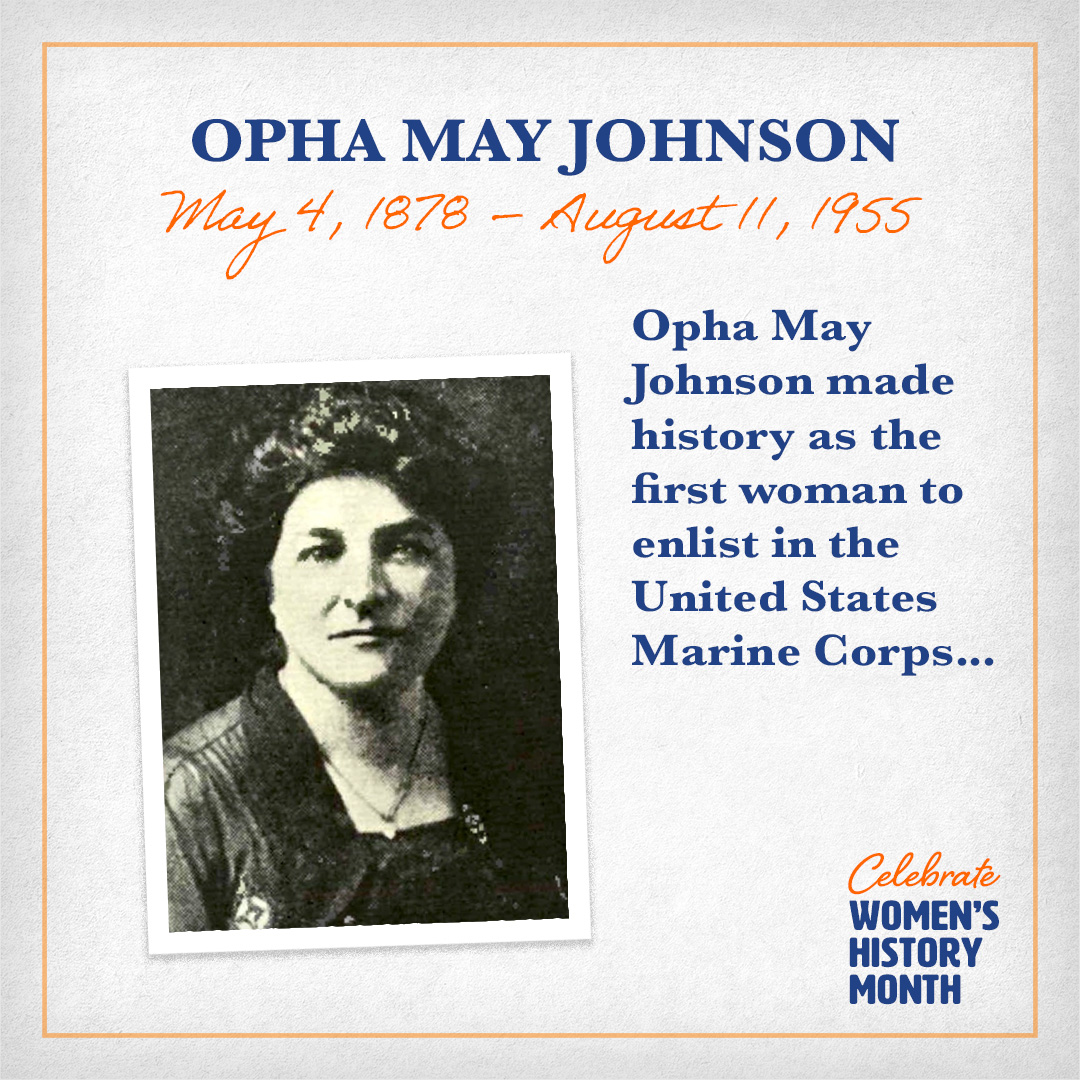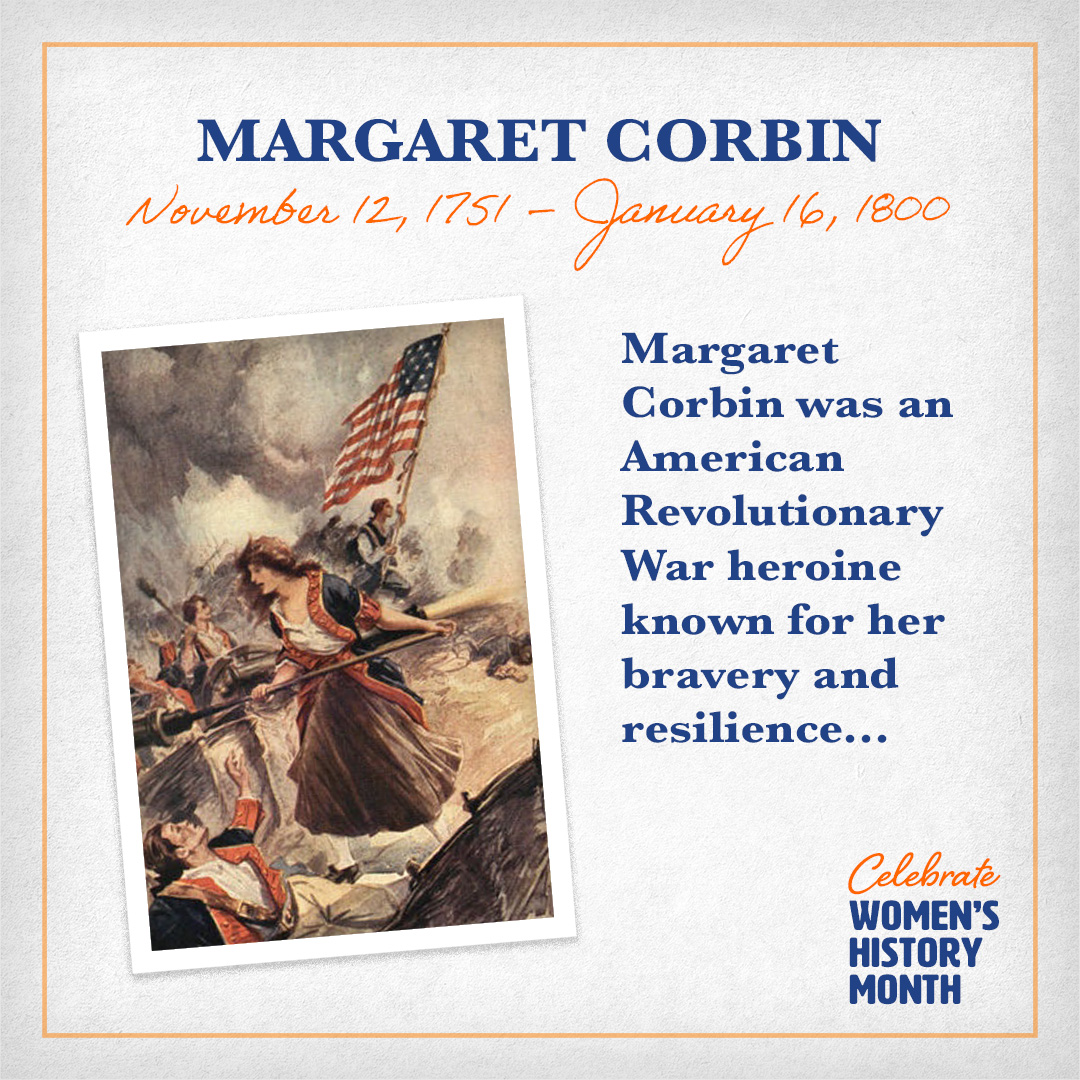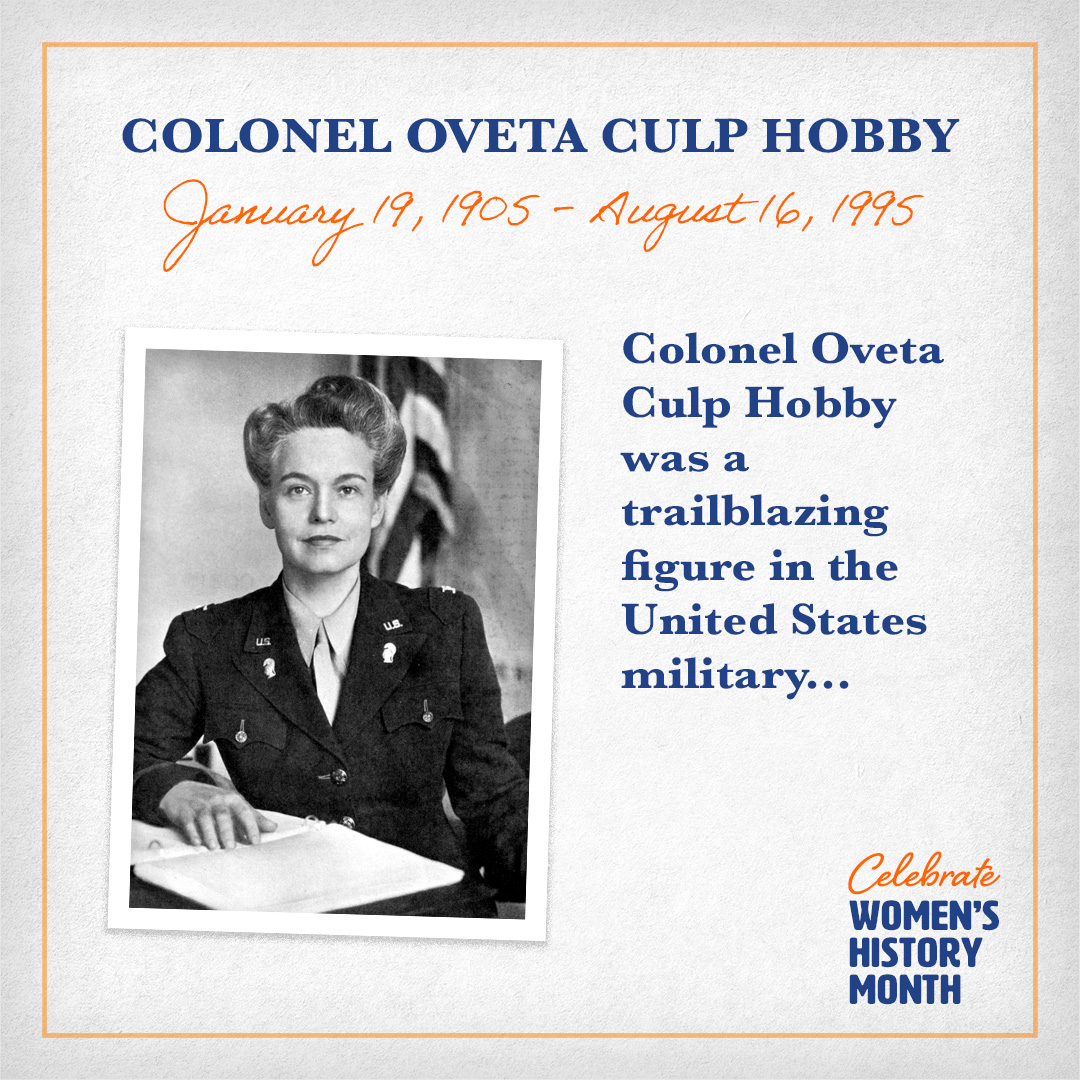
Cathay Williams
September 1844 – 1893
Cathay Williams was the first African American woman known to have served in the United States Army. She disguised herself as a man named William Cathay to enlist in the Union Army during the Civil War, serving as a Buffalo Soldier, the first female Buffalo Solider. Williams’ remarkable feat was achieved despite laws prohibiting women from serving in the military. After her military service, she struggled with health issues and poverty, eventually receiving a pension in recognition of her service. Williams’ courage and determination paved the way for future generations of women in the military.
Opha May Johnson
May 4, 1878 – August 11, 1955
Opha May Johnson made history as the first woman to enlist in the United States Marine Corps. She joined the Marine Corps Reserve in 1918 during World War I, breaking barriers for women in the military. Johnson served as a clerk at Marine Corps headquarters in Washington, D.C., where she played a crucial role in administrative duties. Her enlistment opened doors for women to take on non-combat roles in the Marine Corps. Johnson’s pioneering spirit and dedication inspired countless women to follow in her footsteps in military service.


Margaret Corbin
November 12, 1751 – January 16, 1800
Margaret Corbin was an American Revolutionary War heroine known for her bravery and resilience. She fought alongside her husband, John Corbin, during the Battle of Fort Washington in 1776, where he was killed, and she took over his cannon. Severely wounded, she continued to fire until she herself was injured, becoming the first woman in U.S. history to receive a military pension for her service. Corbin’s valor and sacrifice serve as a testament to the vital but often overlooked contributions of women in America’s fight for independence. Her legacy endures as a symbol of courage and determination in the face of adversity.
Colonel Oveta Culp Hobby
January 19, 1905 – August 16, 1995
Colonel Oveta Culp Hobby was a trailblazing figure in the United States military. She served as the first director of the Women’s Army Corps (WAC) during World War II, overseeing the integration of women into the U.S. Army. Hobby’s leadership was instrumental in expanding opportunities for women in the military and breaking down gender barriers. After her military career, she continued to advocate for women’s rights and served as the first secretary of the Department of Health, Education, and Welfare under President Dwight D. Eisenhower. Hobby’s legacy remains an inspiration for generations of women who have followed in her footsteps in the armed forces.

